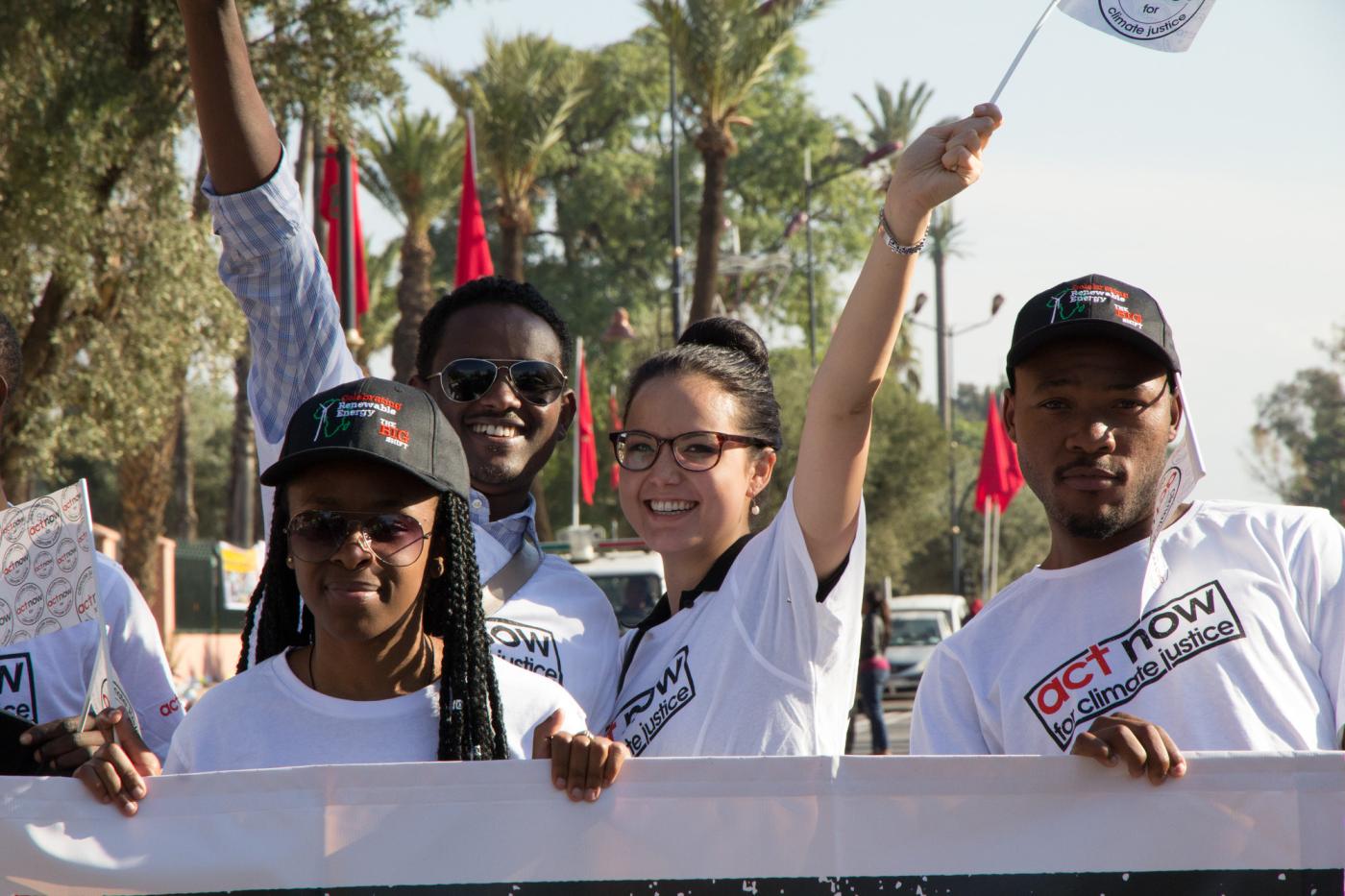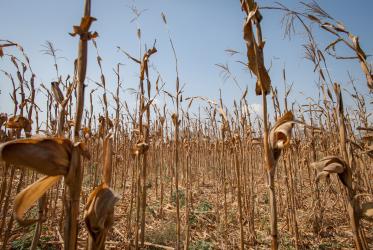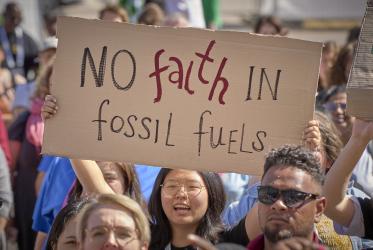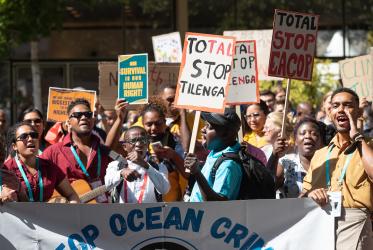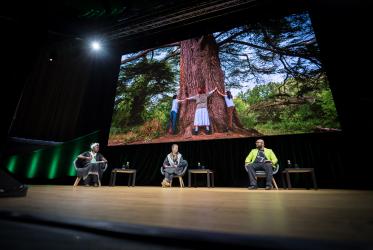"Isn’t it kind of contradictory to fly in thousands of people to talk about CO2 emission reductions? Wouldn’t CO2 emissions substantially decrease, if the amount of people participating in these conferences would be minimized to - let’s say, just some ministers and their advisors?"
Since I’ve been involved with the UN Climate Change Conferences, people started asking me these questions and I found myself forced to justify why I considered participation so super important and necessary. As a climate researcher, I am participating to keep up to date with the momentum created and the new questions to be discovered at these conferences.
As a graduate student, I participate to learn about the politics of climate change and the way negotiations work. As a Mennonite, I participate to stand in for climate justice and to show and communicate solidarity with all those who suffer under the impacts of climate change or the decisions of the powerful fossil-fuel lobby.
The provoking thoughts, mentioned in the beginning, are reasonable, and yes – emissions from travels, accommodation and the general venue facilities are particularly high for such large conferences with more than 20.000 participants. However, without the immense involvement of the civil society we would probably still not have an international agreement at all. It has been the non-governmental organizations, citizen initiatives, indigenous and women groups and last but not least the religious communities that enforced considerable climate action in the last years.
Musical duo Desert Rose performs during an event organized by faith groups at COP22. © Ryan Rodrick Beiler/LWF
When Germany held their press conference, presenting their climate mitigation long term strategy, the minister of the environment mentioned the role of the civil society as important multipliers of climate ambition. In particular, she highlighted the churches as important actors in the movement towards more climate awareness and climate justice.
For the last 24 years, since the Rio Earth Summit in 1992, the global community has been on a pilgrimage to limit global warming. Alike probably every pilgrimage, the community experienced some “Ups” and “Downs” on their way as for example the adoption of the Kyoto Protocol or the disastrous climate conference in Copenhagen in 2009. However, it's tremendous how much time has passed since the process started.
With the adoption of the Paris Agreement, a very important milestone has been reached. It seems that at least everybody is heading the same direction, however still at different speeds and with different ambitions. For some it seems to be a gesture of solidarity, for some it seems the most profitable long-term strategy and for others it means mere subsistence.
Climate change is happening in the here and now. Therefore, it is critical that we ensure the Paris Agreement is implemented in a way which leaves no one behind. The countries have committed themselves to a transition towards low-carbon and renewable societies, but the rules have not been outlined how to ensure that this transition is just, respecting and promoting the human rights of all. Developed countries are no where near the level of ambition the world needs. For the most vulnerable people this means that their entire way of being, their homes and the world's ecosystems are under threat.
As COP 22 has been labelled the “COP of action” we are urged to act now to address climate change. The implementation requires decentralized gender-just solutions, driven by strong consultations and consent within communities in order to challenge dominant patterns of growth and consumption that cause climate change.
Striving to trigger change, we need to start acting at the local level. The importance of the churches in triggering action has been acknowledged – now we have the chance to really make a difference. Especially for us who live in developed countries, climate justice needs to mean more than solidarity with the victims of climate change. It is time for the development of climate change strategies within our congregations. It’s time to convert theory into praxis – let’s become a climate neutral church.
At the same time – coming back to my entry question – we need to make civil societies’ presence felt on the international floor. Let’s not leave the decision-makers with the power to determine our future. It is within your power, all our collective power to meet climate change with the ambition and urgency it deserves.
